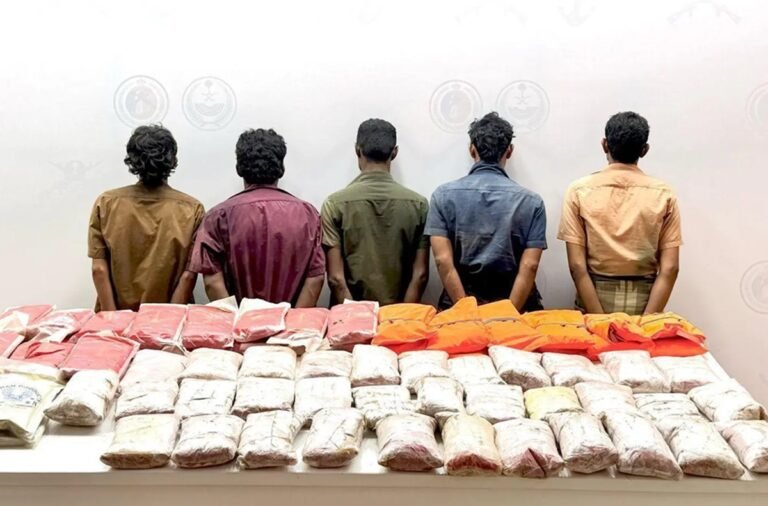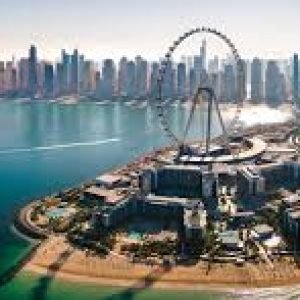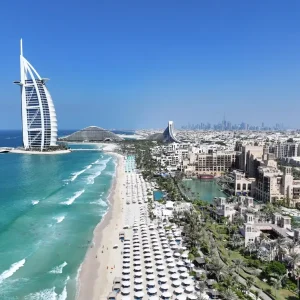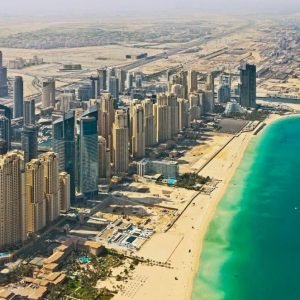Riyadh, June 13, 2025 — In a landmark operation, Saudi Arabia’s border security forces have dealt a sweeping blow to international drug smuggling networks. Over the past days, authorities across multiple provinces uncovered and seized astonishing quantities of illicit substances: 2.76 million amphetamine tablets, 180 tons of khat, and 4 tons of hashish. The crackdown led to 2,411 arrests, representing a decisive victory in the Kingdom’s ongoing campaign against drug trafficking.
Seizure Highlights: Numbers That Tell a Story
Across several provinces including Tabuk, Jazan, Asir, Najran, Makkah, Madinah, and the Eastern Province, officials intercepted:
- 2,756,806 amphetamine tablets, including 1.94 million tablets regulated under medical circulation
- 180 tons of khat, a stimulant leaf popular in parts of Africa and the Middle East
- 4 tons of hashish, a potent form of cannabis
These figures represent some of the largest single seizures of illicit substances in recent Saudi history, shining a spotlight on the scale of global trafficking networks targeting the Kingdom. Saudi Arabia has long held a reputation as one of the world’s top Captagon markets.

A Wide Net: Who Was Apprehended?
Of the 2,411 individuals detained:
- 1,518 were Ethiopian residents
- 842 from Yemen
- 7 Sudanese, 6 Eritreans, 3 Somalis, 2 Pakistanis, and 33 Saudi nationals
Their diversity underscores the transnational nature of these smuggling networks, pushing Saudi enforcement to foster cooperation beyond its borders.

Regional Coordination and Rising Pressure
The Kingdom’s General Directorate of Border Guards coordinated with regional police and narcotics agencies in every major border province. Units patrolled both land and air checkpoints, using real-time intelligence from drones and regional tip-offs to break up smuggling rings. This was supplemented by a surge in public awareness and reports encouraged by official hotlines and email contacts.
Public Engagement: A Crucial Weapon
Saudi Arabia’s Ministry of Interior has been calling on citizens and residents to report suspicious activities. Multiple hotlines are active:
- 911 in Riyadh, Makkah, Madinah, and the Eastern Province
- 999 in other regions
- 994 or 995 for border guard and narcotics control
- and a dedicated email channel—all guaranteeing confidentiality
Community awareness has emerged as a key instrument in detecting smuggling efforts before they reach major checkpoints.
Human Stories: Caught in the Web
Amid the headlines are human stories marked by desperation, coercion, and despair.
Many arrested individuals hail from economically fragile nations—especially Ethiopia and Yemen—where opportunities are scarce and exploitation common. Intelligence suggests that some migrants were subjected to trafficking rings promising false employment or passage abroad, only to be forced into transporting drugs.
Saudi authorities stress they are committed to distinguishing between criminal masterminds and victimized couriers, ensuring humane treatment and fair legal processes. This empathetic lens is part of a broader evolution: the Kingdom now more consistently pairs strict enforcement with rehabilitation and social support.
Forensic Trends: Why Now?
Recent upticks in Captagon and amphetamine trafficking have forced Saudi authorities to intensify enforcement. Historically, Saudi Arabia has experienced surge operations—most notably in 2021, when millions of Captagon pills were intercepted hidden inside fruit shipments.
In 2023, international reports flagged Saudi Arabia as the Gulf’s top amphetamine consumer and seizure hub. The current operation, surpassing past busts in volume and scope, signals the Kingdom’s resolute resolve.
Regional and Global Context: Beyond Saudi Borders
Recent intelligence suggests networks in Syria and Lebanon have played a significant role in facilitating massive Captagon exports to Gulf countries, including Saudi Arabia. As Syria drifted into conflict, the drug trade flourished—propelled by trafficking assured by militants and porous borders.
Jordan, Saudi’s northern neighbor, has also intercepted big shipments, underscoring the shared regional challenge. These dynamics highlight how trafficking links business, militancy, and disrupted societies—and why Saudi action is not an isolated enforcement measure, but an essential piece of regional stability.
Saudi Response: Hardline and Humane

Saudi Arabia’s anti-narcotics approach has evolved since harsh policies of the past, which included capital punishment for traffickers. Today, goals emphasize:
- Stricter sentencing against kingpins and organizers of trafficking
- Investment in enforcement, including drones, scanners, K-9 units, and border guards
- Expanded rehabilitation, to treat both addiction and exploitation
- Public awareness campaigns, alerting youth and families to the perils of drug use
- Cross-border intelligence sharing, especially with Jordan, Lebanon, and Yemen
This multi-pronged initiative reflects a strategy balancing deterrence, compassion, and community resilience.
Back to the Numbers: Why They Matter
The scale of the operation resonates on multiple levels:
- Magnitude: Millions of tablets, hundreds of tons—these aren’t street-level busts; they’re industrial quantities
- Scale: Thousands arrested, and across multiple nationalities—dismantling entire supply chains
- Speed: The operation unfolded over days, across provinces, reflecting outstanding inter-agency coordination
- Public impact: Authorities have already said the operation deprived criminal syndicates of both human and material assets—reinforcing community safety
Wider Impacts: Security, Health and Society
National Security: Saudi Arabia frames drug trafficking as a national security threat, given the historical links between drug proceeds and regional militant groups.
Social Stability: Rising drug use among youth—especially Captagon—has triggered rising public concern, prompting authorities to invest in addiction prevention and rehab.
Global Cooperation: Saudi collaborates with regional and Western partners to track shipments, trace financial flows, and clamp down on logistic networks. Future efforts aim to up the ante in joint operations.
What This Means Going Forward
Enforcement: Expect even tougher border measures—new scanners, enhanced drone patrolling, expanded checkpoints, and canine deployments.
Legislation: Parliament is weighing proposals to sharpen penalties for trafficking network heads and reduce loopholes around prescription-drug diversions.
Local Empowerment: Rehab centers and school initiatives are receiving more attention, designed to catch potential users before criminal ties develop.
Education: Campaigns will aim to change minds—especially among unemployed or disillusioned youth—showing that smuggling, even if initially profitable, carries long-term consequences.
Community Voices: Looking Beyond the Bust

Voices in affected communities tell another side of the story.
In rural areas, social workers note traffickers often exploit poverty, offering small sums for every shipment. Post-release, national outreach programs and NGOs are building language-skilled rehabilitation centers. Youth groups in Jazan and Asir are being trained in drug awareness tactics, to spot and report suspicious activity.
These grassroots efforts, though less visible, may be the seeds of lasting resistance to trafficking.
A Beacon of Progress
Saudi Arabia’s latest operation is proof of what concerted effort and evolving strategy can achieve. It’s not just about seizing pills, khat, and hash—it’s about seizing the initiative against powerful criminal networks.
Authorities are advancing from reactive enforcement to a proactive model: one that coordinates across government agencies, empowers communities, handles addiction with dignity, and refuses to look away when smugglers target vulnerable lives.
Do follow UAE Stories on Instagram
Read More: Dubai Metro Deploys AI Robot to Transform Rail Safety and Speed












